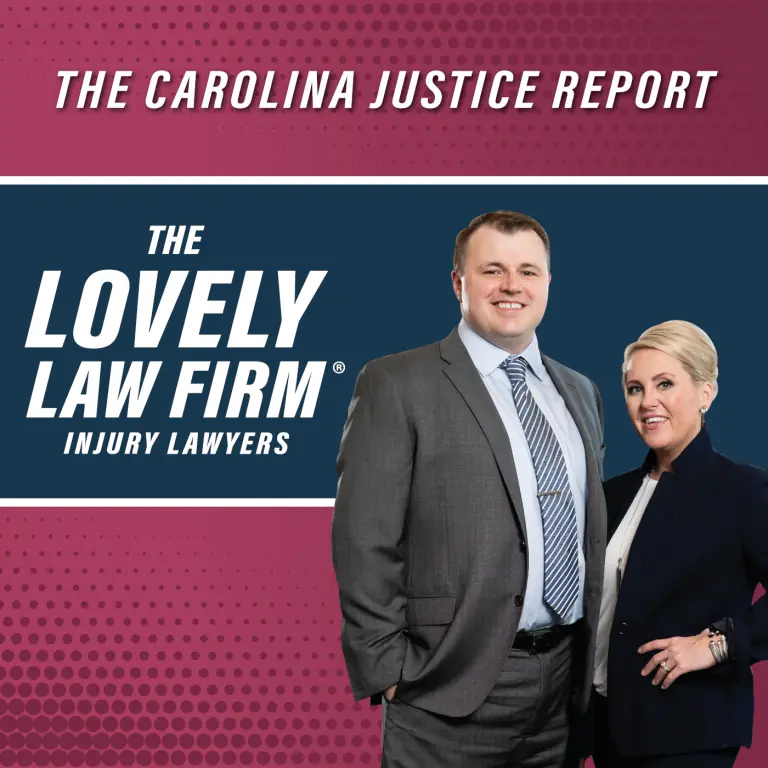Millions of Americans have breast implants. According to the American Society of Plastic Surgeons, 313,735 breast augmentation cosmetic procedures were performed in 2018 in the U.S., and 101,675 breast reconstruction procedures were completed. Women may undergo breast augmentation surgery to achieve an aesthetic result that they want or get breast implants during a reconstruction process following mastectomies. Unfortunately, some types of implants may cause serious medical conditions, including some implants that were manufactured by Allergan. The Lovely Law Firm is currently reviewing and investigating cases in which implants have caused serious medical problems.
The problem with the implants
The implants from this manufacturer are associated with a heightened risk of breast implant-associated anaplastic large cell lymphoma or BIA-ALCL. Research from the U.S. Food and Drug Administration suggests that the risk of developing this disease may depend on the type of implants that you have. Textured implants demonstrate a higher risk of BIA-ALCL than smooth implants.
BIA-ALCL is a form of non-Hodgkin’s T-cell lymphoma, which is an immune system cancer that typically forms in the scar tissue that surrounds the implant. While the cancer forms inside of the breast, it is not breast cancer. BIA-ALCL can take up to 10 years to develop, which is a reason why it took the FDA a long time to identify the established link between the implants and the disease.
What are the symptoms of BIA-ALCL?
The symptoms of BIA-ALCL include the following:
- Swelling in the groin, armpit, or neck
- Fatigue
- Loss of appetite
- Fever
- Night sweats
- Pain
- Swollen lymph nodes
- Weight loss
While BIA-ALCL has mostly been reported in people who have received textured implants, there have also been a few cases in people who have received smooth implants.
Identification of the risk factors for BIA-ALCL
The FDA first noticed a potential association between BIA-ALCL and implants in 2011. The World Health Organization designated this disease as a type of T-cell cancer associated with breast implantation. Europe, Israel, Australia, and Brazil suspended all sales of textured implants from Allergan in Dec. 2018. Health Canada suspended the company’s license for the Biocell implants on May 28, 2019, following a safety review that found that the implants caused an increased risk of BIA-ALCL.
The key legal issue
The company was forced to recall its implants following multiple reports of women suffering ALCL after receiving them. The FDA held an advisory committee meeting in May 2019 to talk about the benefits and risks of implants and to determine recommendations of actions that should be taken because of the concerns about BIA-ALCL. The company announced a worldwide recall of its textured implants on July 24, 2019, following a request by the FDA for a voluntary recall.
The FDA requested the recall following a review of adverse event reports involving implants and BIA-ALCL. Out of 573 cases of BIA-ALCL, 481 cases involved implants from the company. The FDA found that the risk was six times greater for women with Biocell textured implants than it was for textured implants from other manufacturers.
Products included in the recall
All of the following products are included in the recall:
- McGhan silicone-filled Biocell textured implants
- McGhan Style 134 croissant-shaped tissue expanders
- McGhan Magna-site tissue expanders
- Natrelle 133 plus tissue expanders
- Natrelle 133 tissue expanders
- Natrelle Inspira silicone-filled implants
- Natrelle 410 highly cohesive anatomically-shaped silicone implants
- Natrelle saline implants
- Natrelle silicone implants
- Biospan Style 133 tissue expanders
BIA-ALCL injuries and treatment
BIA-ALCL is a type of cancer of the lymphatic that is caused by a gene mutation. The mutation causes T-cells to produce an excess amount of a protein called anaplastic lymphoma kinase or ALK1. It is unclear why textured implants can cause this type of cancer to develop. Research indicates that it could be linked to inflammation that occurs during the scar tissue formation. The scar tissue helps to hold the implants in place. Another potential reason is that bacterial contamination can occur at the surgical site and might play a role. Finally, family history is also thought to play a potential role.
The initial symptoms of BIA-ALCL include painless swelling in the lymph nodes that is noticeable. This swelling might occur in the neck, groin, or armpits. After that, people may suffer from appetite loss, fever, fatigue, and night sweats. An accurate diagnosis requires that an enlarged lymph node is examined to determine whether cancer cells are present.
Out of the 573 cases that were submitted to the FDA, 84% involved implants from Allergan. Fifty of the reports, or 9%, involved implants that were manufactured by different companies. In 40 cases, the manufacturer was not identified. OUt of the reports that were made, 33 people died from BIA-ALCL. In 13 of the deaths, the manufacturer was identified, and 12 out of the 13 were made by the company. The median time from the date of implantation to the diagnosis of BIA-ALCL was eight years.
If BIA-ALCL is detected early, it can often be treated by removing the implant and the scar tissue around it. Unfortunately, BIA-ALCL can metastasize to other areas of the body, which may require radiation and chemotherapy treatments. Early diagnosis is key to better prognoses.
Potential compensation in an implant cancer lawsuit
If you have been diagnosed with BIA-ALCL after having a breast implantation procedure, you may be able to recover the following types of damages in an implant cancer lawsuit:
- Past medical expenses and future anticipated medical expenses
- Past and future income losses
- Past and future pain and suffering
- Emotional trauma
- Disfigurement and scarring
- Reduction in the enjoyment of life
If your loved one died as a result of BIA-ALCL, you might be able to recover the following additional types of damages:
- Funeral and burial expenses
- Lost inheritance rights
- Losses of your loved one’s income
- Loss of consortium and guidance
Legal claims in implant lawsuits against the manufacturer
Shortly after the voluntary recall, two women filed lawsuits against the manufacturer. While neither of the women has developed BIA-ALCL, they both claim that they would not have gotten the implants if they had known about the risks. They are suing for the company’s failure to warn them of the risks and to try to get the company to pay for the removal costs of their implants. Since hundreds of women have been diagnosed with BIA-ALCL around the U.S., it is likely that more women will file lawsuits against the manufacturer. These cases are still in their infancy, and further investigation may reveal additional legal grounds on which the claims might be based.
Contact The Lovely Law Firm to learn more
If you have been diagnosed with BIA-ALCL after receiving textured implants or have lost your loved one to the disease, you may have legal rights. The experienced personal injury lawyers at the Lovely Law Firm are currently reviewing potential claims and investigating them. To learn more about your potential claim and the rights that you might have, contact the Lovely Law Firm for a case analysis by calling us at (843) 839-4111.







